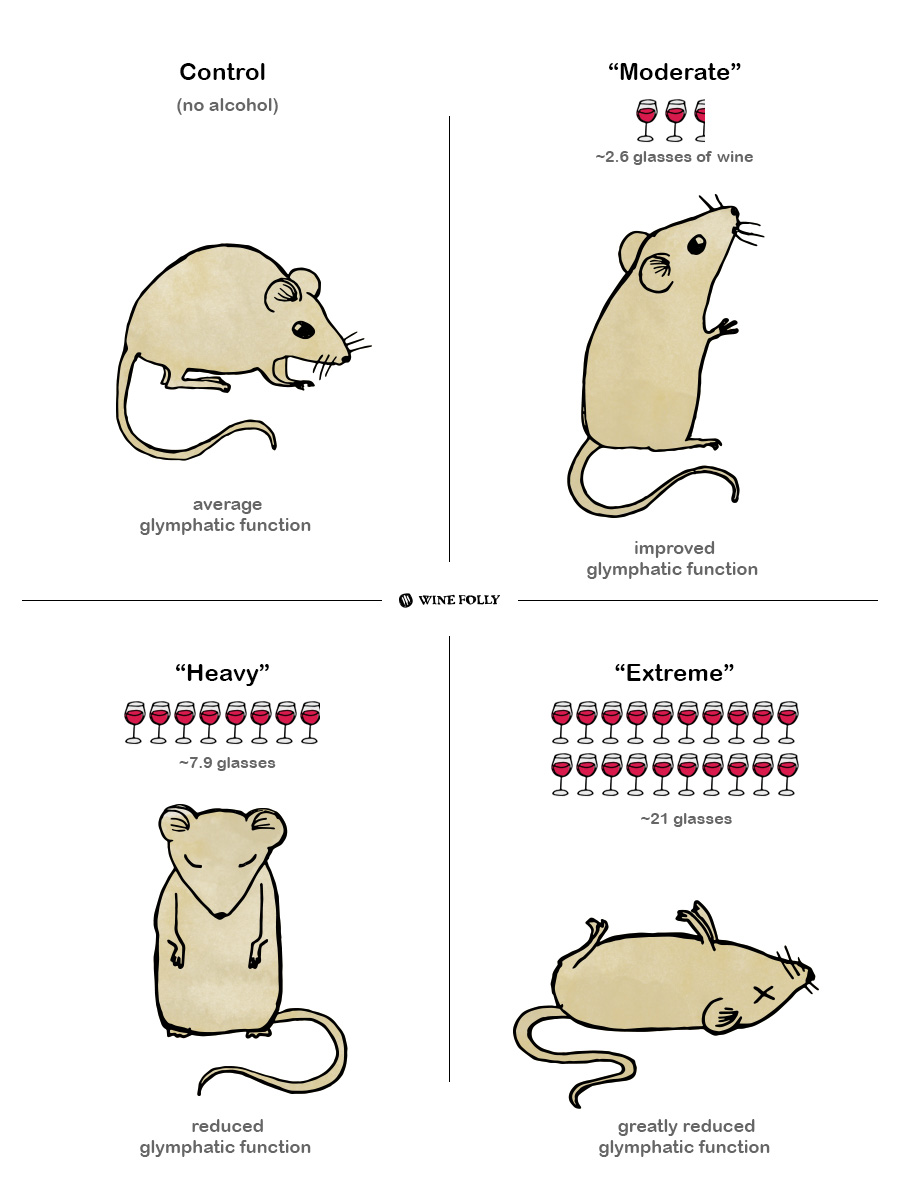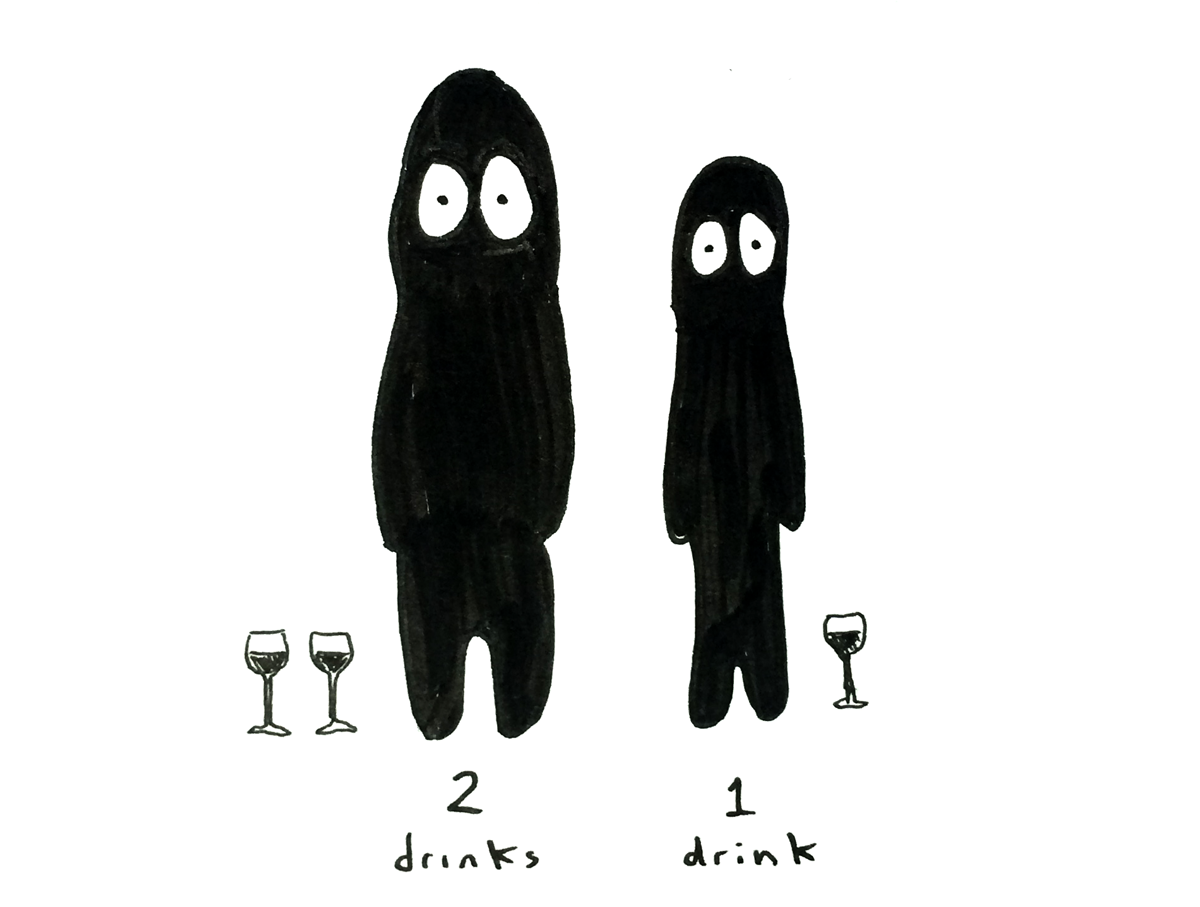A new study has headlines shouting “wine will clean your brain!” So, what does this study really signify? Find out the real story.
“Wine Will Clean Your Brain!”
You might have noticed talk about a recent study that’s been of interest to wine drinkers everywhere. The study explored the long-term effects of alcohol on the central nervous system (e.g. your brain). Some of the reporting out there has come with some pretty snappy headlines (e.g. “Wine will clean your brain!”) Naturally, you’re probably a bit skeptical. Let’s take a closer look.

A recent study studied alcohol’s effect on the brain’s waste removal system (the glymphatic system). The results were surprising.
The Alcohol Brain Study
In February 2018, The Center for Translational Neuromedicine at The University of Rochester published a study about the effects of prolonged alcohol exposure on the central nervous system. In their study, they exposed mice to various levels of ethanol (alcohol) in small, intermediate, and high doses. They were trying to pinpoint how much alcohol it takes to damage central nervous system function. For their metric, they observed the glymphatic system. The results were unexpected.
What Is The Glymphatic System? Think of it as the waste removal system of your brain. It’s the distribution network of crucial compounds (glucose, amino acids, neurotransmitters) through your central nervous system.
What Did The Study Find?
Good News
Low: (0.5 g/kg per day) = Equivalent to 2.63 Glasses of Wine a Day (Moderate Drinking)
Findings showed that the glymphatic function in mice improved with a low-dose exposure to ethanol. In human terms, it would be equivalent to about 2 and a half glasses of wine (for a 155 lb / 70 kg human). The exposure to ethanol also reduced inflammation and increased efficiency of waste removal in the brain.
Bad News
Medium: (1.5 g/kg per day) = Equivalent to 7.9 Glasses of Wine a Day (Binge Drinking)
High: (4 g/kg per day) = Equivalent to 21 Glasses of Wine a Day (Sheer Insanity)
Unfortunately, the intermediate- (1.5 g/kg) and high-dose (4 g/kg) exposures majorly decreased the glymphatic function of the mice, resulting in suppressed activity, misallocation of compounds, and induced an injury reaction in the cells. The authors suggested that these adverse reactions likely increase the risk of dementia.
This article is designed to break down this study to be as digestible as possible. If you’re interested in learning more and getting specifics, see the full study.
Last Word: Drink Smarter
People are saying incredible, half-true things about wine all the time. It’s wise to keep your guard up, look past the clickbait headline, and get to the facts. Wine may taste magical, but it isn’t magic.
Yes, wine at this stage has some interesting central nervous system benefits and hazards—in mice. Though it should go without saying that testing on mice, despite similar genetic and biological behaviors, isn’t the same as testing on humans. There’s still a way to go, so it might be wise to err on the side of caution and moderation.
It’s good to see more and more discussion about alcohol’s impact on human health. As wine drinkers, it’s essential to understand alcohol’s quantifiable effect on our immune, digestive, endocrine, and cardiovascular systems as well as our central nervous system.
Live long and prosper.
What is Moderation?
Moderation is defined by the National Institute on Alcohol Abuse and Alcoholism (NIAAA) as one drink per day for women, two for men. Why do men get to drink more than women?

